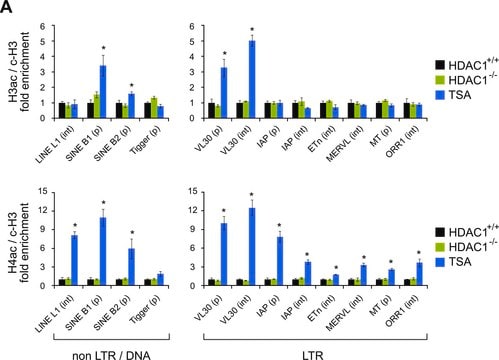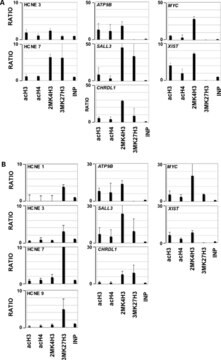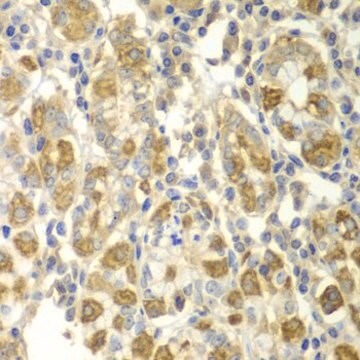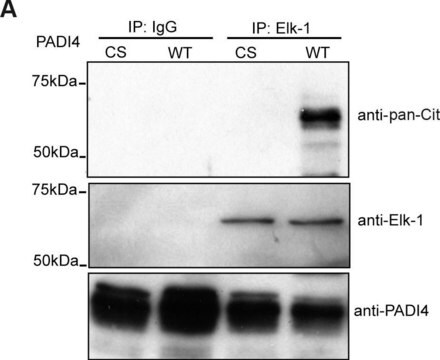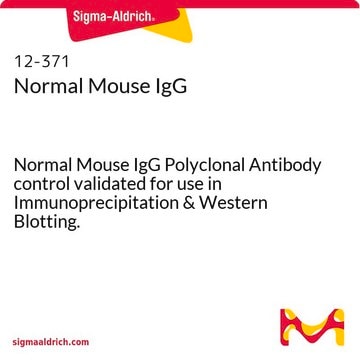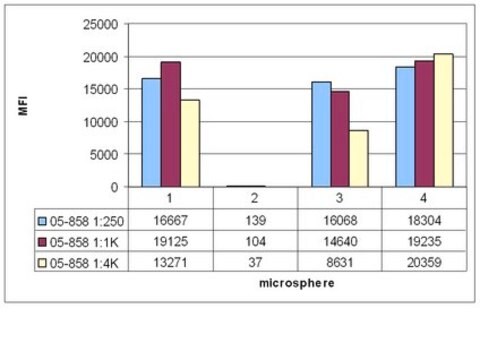07-108
Anti-Histone H4 Antibody
Upstate®, from rabbit
Synonym(s):
H4 histone family, member A, histone 1, H4a, histone cluster 1, H4a
About This Item
Recommended Products
biological source
rabbit
Quality Level
antibody form
purified immunoglobulin
antibody product type
primary antibodies
clone
polyclonal
species reactivity
Xenopus, mouse, avian, chicken, human, bovine
manufacturer/tradename
Upstate®
technique(s)
western blot: suitable
isotype
IgG
NCBI accession no.
UniProt accession no.
shipped in
wet ice
target post-translational modification
unmodified
Gene Information
bovine ... H4C1(617905)
frog ... H4C1(549623)
human ... H4C1(8359)
mouse ... H4C1(326619)
General description
Specificity
Immunogen
Application
Epigenetics & Nuclear Function
Histones
Quality
Western Blot Analysis:
0.1-0.5 μg/mL of this lot detected Histone H4 in acid extracts of HeLa cells treated with or without 5 mM sodium butyrate. This lot did not cross react with Histone H2A, Histone H2B or Histone H3.
Target description
Physical form
Storage and Stability
Analysis Note
HeLa cell extract.
Other Notes
Legal Information
Disclaimer
Not finding the right product?
Try our Product Selector Tool.
recommended
Storage Class Code
12 - Non Combustible Liquids
WGK
WGK 1
Flash Point(F)
Not applicable
Flash Point(C)
Not applicable
Certificates of Analysis (COA)
Search for Certificates of Analysis (COA) by entering the products Lot/Batch Number. Lot and Batch Numbers can be found on a product’s label following the words ‘Lot’ or ‘Batch’.
Already Own This Product?
Find documentation for the products that you have recently purchased in the Document Library.
Our team of scientists has experience in all areas of research including Life Science, Material Science, Chemical Synthesis, Chromatography, Analytical and many others.
Contact Technical Service